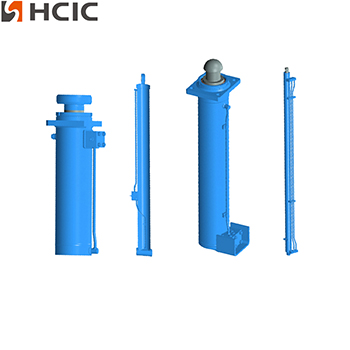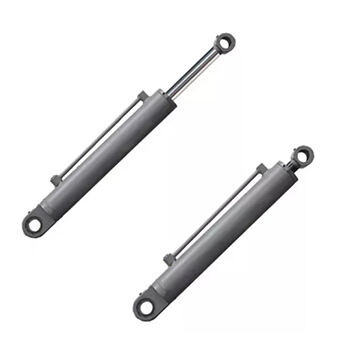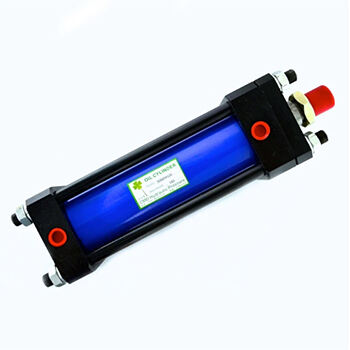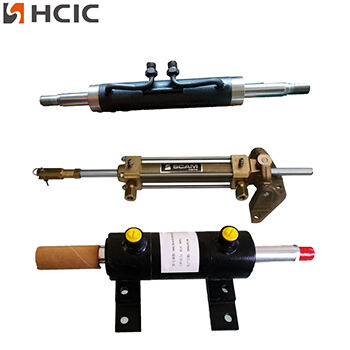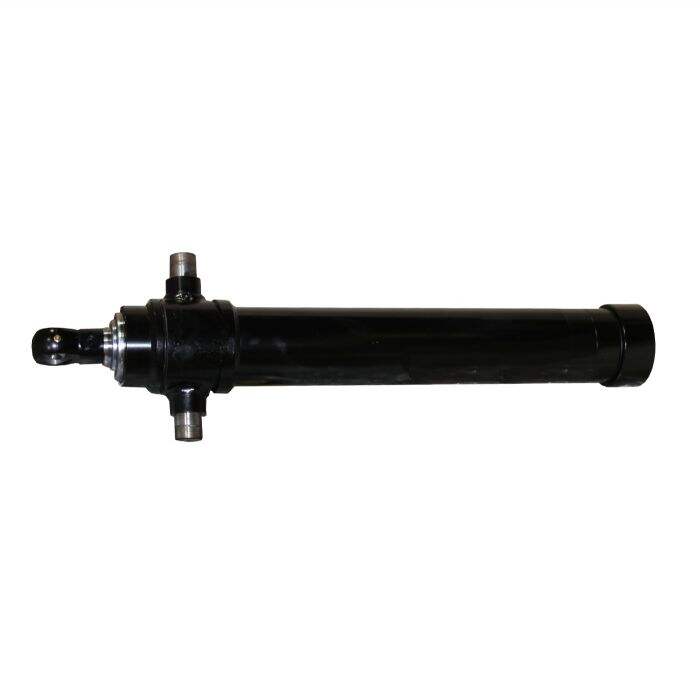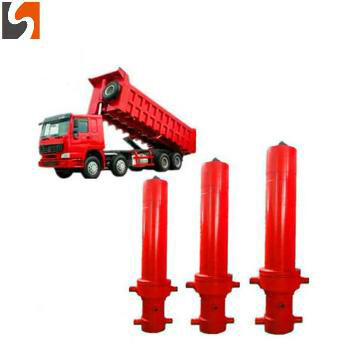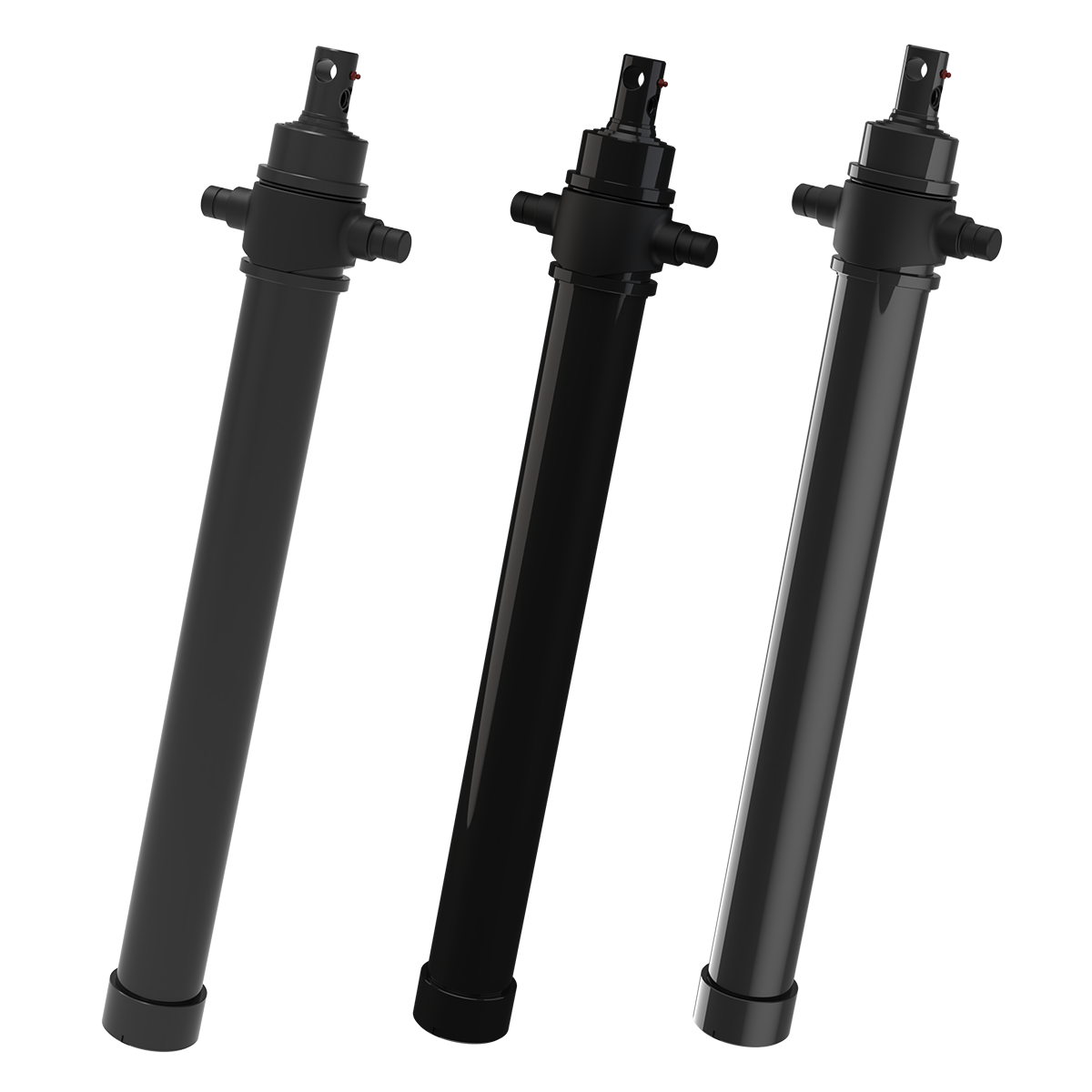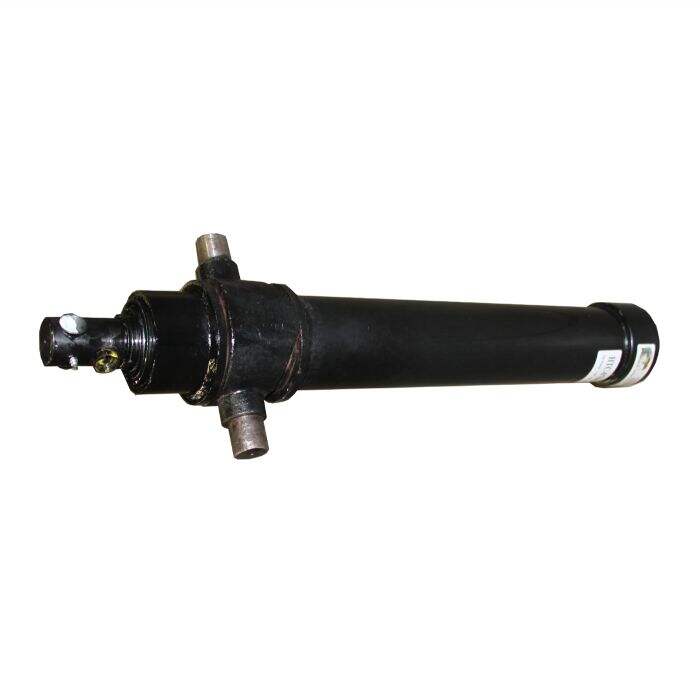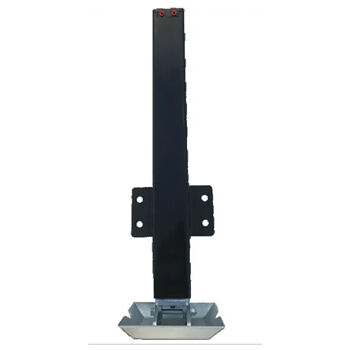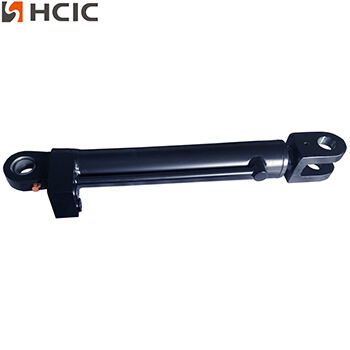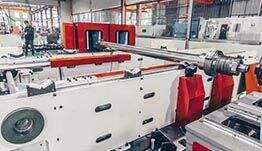Top 5 strojeva za gradnju podložnih za promašaj hidrauličkog cilindra
Oprema za građevinarstvo ovisno je o hidrauličkim sustavima da izvrši razne zadatke, od podizanja i kopanja do ravnanja i prijevoza. Ti hidraulički sustavi, koji se koriste uz tlak hidrauličkog tekućeg, pretvaraju hidrauličku energiju u mehaničku energiju kako bi mašinerija mogla riješiti zahtjevne poslove.
Međutim, hidraulički cilindri su ključni komponenti ovih sustava i osjetljivi su na oštećenja zbog čimbenika poput zagadnjenja tekućine, nepravilne održavanja i ekstremnih temperature. Ovaj članak od naše ekipa kod HCIC . će rasuđivati o pet vrsta velikih strojeva za građevinarstvo kojima je najčešće pripisana oštećenja hidrauličkog cilindra te istražiti uzroke, sprečavanje i održavanje tih problema.
1. Ekskavator: Kraljevi građevinskih staza
Ekskavatori ovisno su o hidrauličkim cilindrima kako bi dobili snagu za ram, ruku i škopac, što im omogućuje učinkovito kopanje, podizanje i premještanje materijala. Ti cilindri nude potrebnu snagu i preciznost koje su ekskavatorima potrebne za učinkovito izvršavanje zadataka u tužnim radnim uvjetima.
Najčešća razloga/pričine poloma:
Zagrijbanje tekućine zbog prašine, blate i otpadnih materijala.
Oštećene ili pokvarene pečatke i štapići.
Preopterećenje ili preveliki stres na hidraulički sustav.
Nepravilno održavanje ili nedostatak redovitog servisa.
Vodič za određivanje problema:
Provjerite jesu li na hidrauličkim cilindrima vidljive crte života ili štete.
Pratite performanse ekskavatora na prisutnost smanjene snage ili učinkovitosti.
Provjerite hidrauličko ulje na znakove zagrijbanja ili degradacije.
Slušajte neobične zvuke ili vibracije tijekom rada.
Savjeti za održavanje kako izbjegnuti nedostupnost:
Izvršavajte redovitu filtraciju i zamjenu tekućine.
Držite ekskavator čistim i slobodnim od smetnje.
Provjeravajte i zamjenjujte poštešene pečatke i šipke pista po potrebi.
Pratite proizvođačev preporučeni raspored održavanja.
Koristite visokokvalitetnu hidrauličku tekućinu i filtre.
2. Loptari: Premeštanje planina, jednim kopom na vrijeme
Loptari, kao što su točni loptari i loptari s paralelnim upravljanjem, koriste hidrauličke cilindre za podizanje i nagibanje kofa, što im omogućuje brzo i učinkovito premještati velike količine materijala. Ti cilindri imaju potrebnu snagu i kontrolu da bi loptari učinkovito obavljali svoje zadatke.
Najčešća razloga/pričine poloma:
Oštećene ili oštećene šipke cilindra zbog neuskladjenih pričvrstavanja, nepovoljne lubrikacije ili apstraktivnih čestica u hidrauličkoj tekućini.
Poštešene ili oštećene pečatke, što uzrokuje promjete i smanjenje performansi.
Preopterećenje ili preveliki stres na hidraulički sustav.
Nepravilno održavanje ili nedostatak redovitog servisa.
Vodič za određivanje problema:
Provjerite jesu li na hidrauličkim cilindrima vidljive crte života ili štete.
Provjerite šipke cilindara na oštećenja ili iznosenost.
Pratite učinkovitost mašine za smanjenu kapacitetu podizanja ili brzinu.
Provjerite razinu i stanje hidraulične tekućine.
Savjeti za održavanje kako izbjegnuti nedostupnost:
Osigurajte ispravnu instalaciju i poravnanje hidrauličkih cilindara.
Obavljajte redovito mastanje i održavanje tekućine.
Provjerite i zamijenite iznosele pečate i šipke cilindara ako je potrebno.
Pratite proizvođačev preporučeni raspored održavanja.
Koristite visokokvalitetnu hidrauličku tekućinu i filtre.
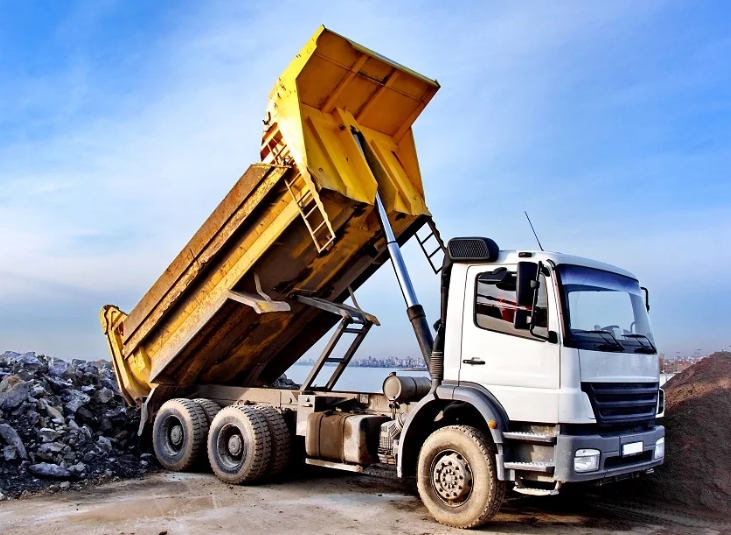
3. Kopar-laster: Sve-u-jednom alat građevinarstva
Kopar-lasteri su fleksibilne mašine koje kombiniraju funkcionalnost kopara i lastera. Ovisi o hidrauličkim cilindrima za snagu za rukavo, krak i koprnu kopara, kao i za funkcije podizanja i nagibanja lastera. To ih čini idealnim za širok spektar građevinskih zadataka.
Najčešća razloga/pričine poloma:
Pojavljivanje neispravnosti pečata zbog ekstremnih temperature, kontaminacije tekućine ili neispravnog održavanja.
Iznosene ili oštećene šipke pistona i ložđa.
Preopterećenje ili preveliki stres na hidraulički sustav.
Neispravna radnja ili nedostatak obuke operatera.
Vodič za određivanje problema:
Provjerite jesu li na hidrauličkim cilindrima vidljive crte života ili štete.
Pratite performanse ekskavatora s pogonom na smanjenu snagu ili učinkovitost.
Provjerite hidrauličku tekućinu na znakove zagadjenja ili degradacije.
Slušajte neobične zvuke ili vibracije tijekom rada.
Savjeti za održavanje kako izbjegnuti nedostupnost:
Koristite visokokvalitetne pečatke i redovito ih provjeravajte i zamijenite po potrebi.
Izvršavajte redovitu filtraciju i zamjenu tekućine.
Provjerite i zamijenite oštećene šipke i ložđe ako je to potrebno.
Pratite proizvođačev preporučeni raspored održavanja.
Osigurajte odgovarajuću obuku operatera kako bi se izbjeglo preopterećivanje ili neispravan korištenje.
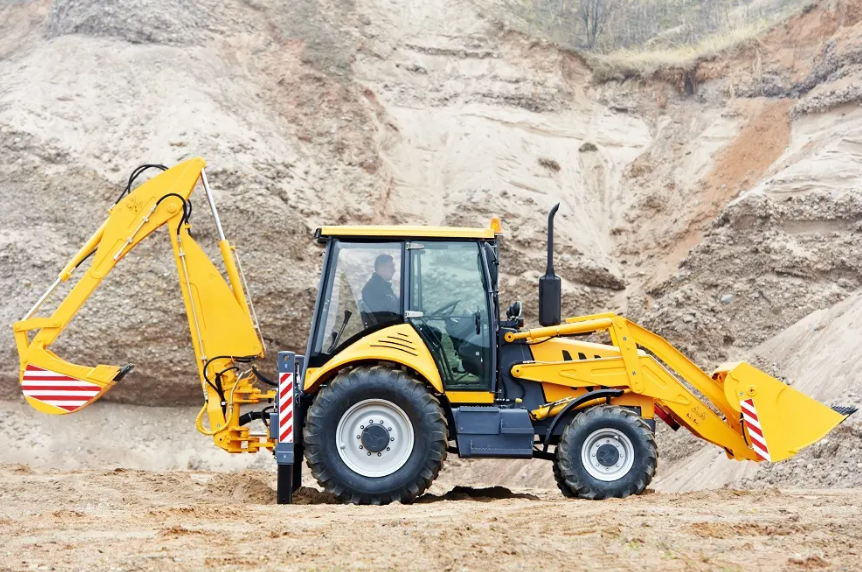
4. Buldozeri: Pomirivanje zemlje s nepojediničnom snagom
Buldozeri su strojevi za teški posao koji ovisi o hidrauličkim cilindrima za upravljanje klizirom. Oni pružaju potrebnu silu za gibanje i pomicanje velikih količina tla, stijena i otpada. Ti cilindri omogućuju buldozerima da učinkovito obavljaju svoje zadatke u ekstremnim radnim uvjetima.
Najčešća razloga/pričine poloma:
Zagadnjavanje tekućine zbog ostrih radnih okolnosti, što dovodi do oštećenja cilindara i drugih komponenti.
Oštećene ili pokvarene pečatke i štapići.
Preopterećenje ili preveliki stres na hidraulički sustav.
Nepravilno održavanje ili nedostatak redovitog servisa.
Vodič za određivanje problema:
Provjerite jesu li na hidrauličkim cilindrima vidljive crte života ili štete.
Pratite performanse buldozera s pogonom na smanjenu snagu ili učinkovitost.
Provjerite hidrauličku tekućinu na znakove zagadjenja ili degradacije.
Slušajte neobične zvuke ili vibracije tijekom rada.
Savjeti za održavanje kako izbjegnuti nedostupnost:
Održavajte čist sustav hidraulike zamenom filtra i tekućine na redovitim intervalima.
Osigurajte da je buldozer slobodan od smetnje i čistite hidrauličke komponente redovito.
Provjeravajte i zamjenjujte poštešene pečatke i šipke pista po potrebi.
Pratite proizvođačev preporučeni raspored održavanja.
Koristite visokokvalitetnu hidrauličku tekućinu i filtre.

5. Kamionи za otpad: Prevoz teških tereta s moću hidraulike
Kamioni za otpad ovisno o hidrauličkim cilindrima kako bi podigli i spustili platformu, što im omogućuje brzo i lako izvući svoj teret. Ti cilindri pružaju potrebnu moć i kontrolu da bi kamioni za otpad transportirali velike količine materijala učinkovito.
Najčešća razloga/pričine poloma:
Preopterećivanje ili premašivanje utvrđene nosivosti kamiona, što dovodi do prekomjerne naporne opterećenja hidrauličkih cilindara.
Oštećene ili pokvarene pečatke i štapići.
Zagađenje tekućine zbog neugodnih radnih okolnosti.
Nepravilno održavanje ili nedostatak redovitog servisa.
Vodič za određivanje problema:
Provjerite jesu li na hidrauličkim cilindrima vidljive crte života ili štete.
Pratite performanse kamiona za otpad za smanjeni kapacitet podizanja ili brzinu.
Provjerite hidrauličku tekućinu na znakove zagadjenja ili degradacije.
Slušajte neobične zvuke ili vibracije tijekom rada.
Savjeti za održavanje kako izbjegnuti nedostupnost:
Provjerite da li je kamion opterećen unutar svoje utvrđene nosivosti.
Obavljajte redovite inspekcije i održavanje hidrauličkih cilindara.
Zamijenite nošive pečate i šipke pistona po potrebi.
Održavajte čist sustav hidraulike zamenom filtra i tekućine na redovitim intervalima.
Pratite proizvođačev preporučeni raspored održavanja.
Spriječavanje poništavanja hidrauličkog cilindra: najbolje prakse
Iako je poništavanje hidrauličkog cilindra uobičajeni problem u građevinskom opremu, postoji nekoliko najboljih praksi koje mogu pomoći da se ove poništavanja spriječe i produže radno vrijeme hidrauličkog sustava.
Naš tim je sažet ono što trebate znati:
Redovito održavanje: Izvršavanje redovitog održavanja, kao što su promjene tekućine i filtra, može pomoći da se spriječi zaraza i osigura da hidraulički sustav radi s najboljom performansom.
Točno upravljanje: Upravljanje opremom unutar njezine nominalne kapacitete i izbjegavanje preopterećenja može pomoći da se spriječi preveliki stres na hidrauličke cilindrove.
Točan odabir tekućine: Korištenje točnog tipa i kategorije hidrauličke tekućine može pomoći da se spriječi zaraza i osigura optimalnu performancu.
Zamjena sigilaca i komponenti: Redovita provjera i zamjena sigilaca i drugih komponenti može pomoći da se spriječe promjocnice i osigura da hidraulički sustav radi učinkovito.
Redovne provjere: Izvođenje redovnih provjeri hidrauličkog sustava može pomoći u identifikaciji mogućih problema prije nego što dovedu do pošte, omogućujući brze popravke i održavanje.
Zaključak
Nažalost, promjene hidrauličkog valjka su česta pitanja u građevinskom opremu, s ekskavatorima, ladežima, backhoe ladežima, buldozerima i smetnjakama koje su posebno podložne ovim problemima. Međutim, malo znanja daleko ide. Shvaćanjem uzroka promjena hidrauličkog valjka, kao što su kontaminacija tekućine, nepravilno održavanje i preopterećenje, građevinski stručnjaci mogu poduzeti korake za sprečavanje ovih problema i produžiti životnost svoje opreme.
Redovno održavanje hidrauličkog sustava, pravilna radnja, odabir prave hidrauličke ulja, zamjena hidrauličkih sigili i komponenti, te redovne provjere su sve ključne najbolje prakse za sprečavanje promjena hidrauličkog valjka.
Graditeljske tvrtke bi trebale pratiti ove smjernice i surađivati s iskusnim profesionalcima za popravak hidraulika, kao što su HCIC . da bi čuvala svoje opremu u funkciji i izbjegavala skupi stajališta. Ako imate probleme s vašim hidrauličkim cilindrima ili vam je potrebna bilo kakva vrsta popravka, kontaktirajte nas danas za stručnu podršku i rješenja.

 EN
EN
 AR
AR
 BG
BG
 HR
HR
 CS
CS
 DA
DA
 NL
NL
 FI
FI
 FR
FR
 DE
DE
 EL
EL
 HI
HI
 IT
IT
 JA
JA
 KO
KO
 NO
NO
 PL
PL
 PT
PT
 RO
RO
 RU
RU
 ES
ES
 SV
SV
 CA
CA
 TL
TL
 IW
IW
 ID
ID
 LV
LV
 LT
LT
 SR
SR
 SK
SK
 UK
UK
 VI
VI
 HU
HU
 TH
TH
 TR
TR
 FA
FA
 MS
MS
 GA
GA
 CY
CY
 KA
KA

